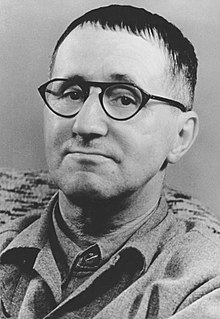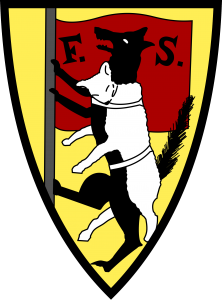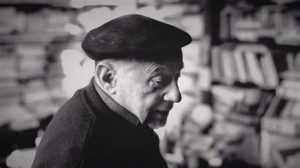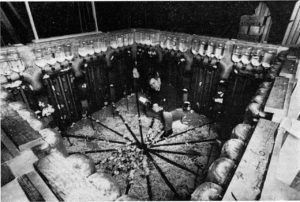
According to Clark (2006):
“… the critique of intellectuals which Brecht developed… around the notion of ‘Tuismus’ engages a model of the public intellectual in which the self-image of the artist and thinker as a socially and politically engaged person corresponded to the expectations of the public.”
- Clark, M. W. (2006). Hero or villain? Bertolt Brecht and the crisis surrounding June 1953. Journal of Contemporary History.
- Hunt, T. C. N.-. (2004). Goodbye to Berlin: For 200 years, German thinkers have shaped British intellectual life – but their influence is fading fast. The Guardian.
According to Mark Clark:
… the critique of intellectuals which Brecht developed… around the notion of ‘Tuismus’ engages a model of the public intellectual in which the self-image of the artist and thinker as a socially and politically engaged person corresponded to the expectations of the public. Partisan without being bound to a party, independent of official institutions yet experienced in surviving within institutions, prepared to entertain risks and undertake unconventional experiments: this was how Brecht accommodated a world which he envisioned as changeable. His antagonistic worldview fed on crisis and found its most productive, creative impulse in the escalation of contradictions.
Brecht routinely referred to the members of the Frankfurt School, particularly Theodor Adorno, as “Tuis”. The corresponding term “Tuism” describes the theory and practice of the Tui-intellectual.

![Intellectual covering eb30b70a21f1063ecd0b4401ef444f94eb6ae3d01db316439df7c479_640[1]](https://cognitive-liberty.online/wp-content/uploads/eb30b70a21f1063ecd0b4401ef444f94eb6ae3d01db316439df7c479_6401-300x200.jpg)




![Erich Fromm - Disobedience: A Moral or Psychological Problem (1962) MV5BMDk1ZjhmZjUtNzMyYy00ZDk3LWIxNzEtNjFlMTE4ZTk3MDkxXkEyXkFqcGdeQXVyNDUzOTQ5MjY@._V1_[1]](https://cognitive-liberty.online/wp-content/uploads/MV5BMDk1ZjhmZjUtNzMyYy00ZDk3LWIxNzEtNjFlMTE4ZTk3MDkxXkEyXkFqcGdeQXVyNDUzOTQ5MjY@._V1_1-204x300.jpg)
![The opportunistic marketable/salable character ef3cb10f2cfc1c3e815b410cee45449efe76e7d11eb311479cf3c8_640[1]](https://cognitive-liberty.online/wp-content/uploads/ef3cb10f2cfc1c3e815b410cee45449efe76e7d11eb311479cf3c8_6401-300x113.jpg)

